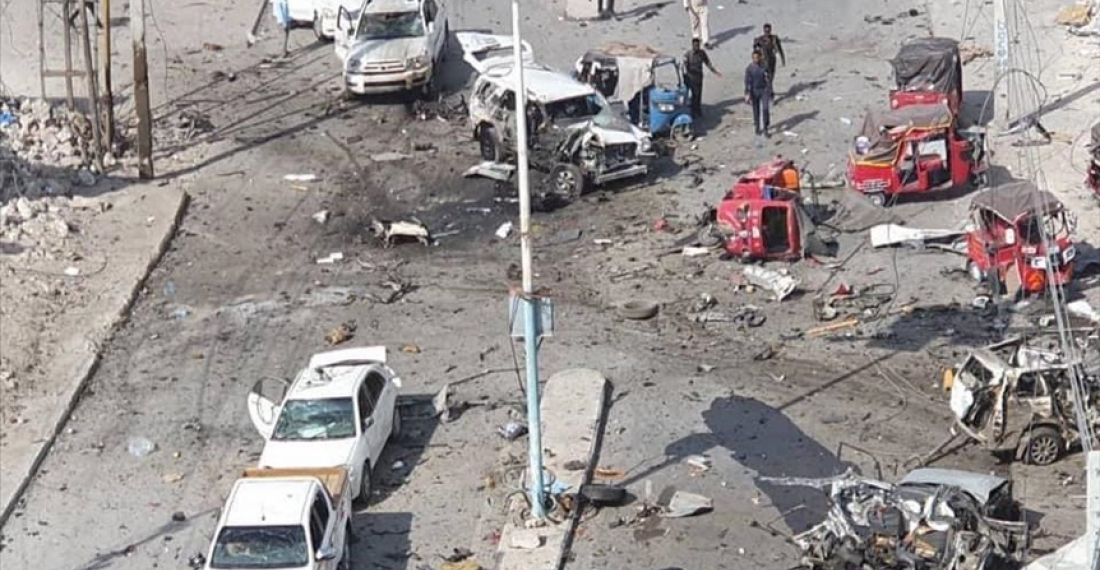At least seven people were wounded when a suicide car bomb blast targeted a security checkpoint near the Somali parliament headquarters in the capital Mogadishu on Saturday (13 February), local police said.
"A suicide bomber driving a Toyota Noah [vehicle] drove past a security checkpoint in the Dabka area, forcing police to open fire. At least seven people were wounded, eight cars and nine rickshaws were destroyed in the morning bombing in Mogadishu," Somali police said in a statement.
The attack targeted a security checkpoint near the Sayidka junction in Mogadishu's busiest Makka al-Mukarama road. The Sayidka junction is located steps away from Somali parliament headquarters and close to the presidential palace.
Somali police have not reported any fatalities in the suicide bombing but local media said at least five people were killed.
Police spokesman Sadaq Adan Ali had earlier confirmed the car bomb blast to Anadolu Agency over the phone following the attack.
"The police, other security forces, and paramedics reached the scene and the road leading to the presidential palace were closed," he noted, adding that the police also launched an investigation.
No group has yet claimed responsibility for the attack but Somali-based al-Qaeda-affiliated militant group al-Shabaab carried out recent attacks in the Horn of African country.






